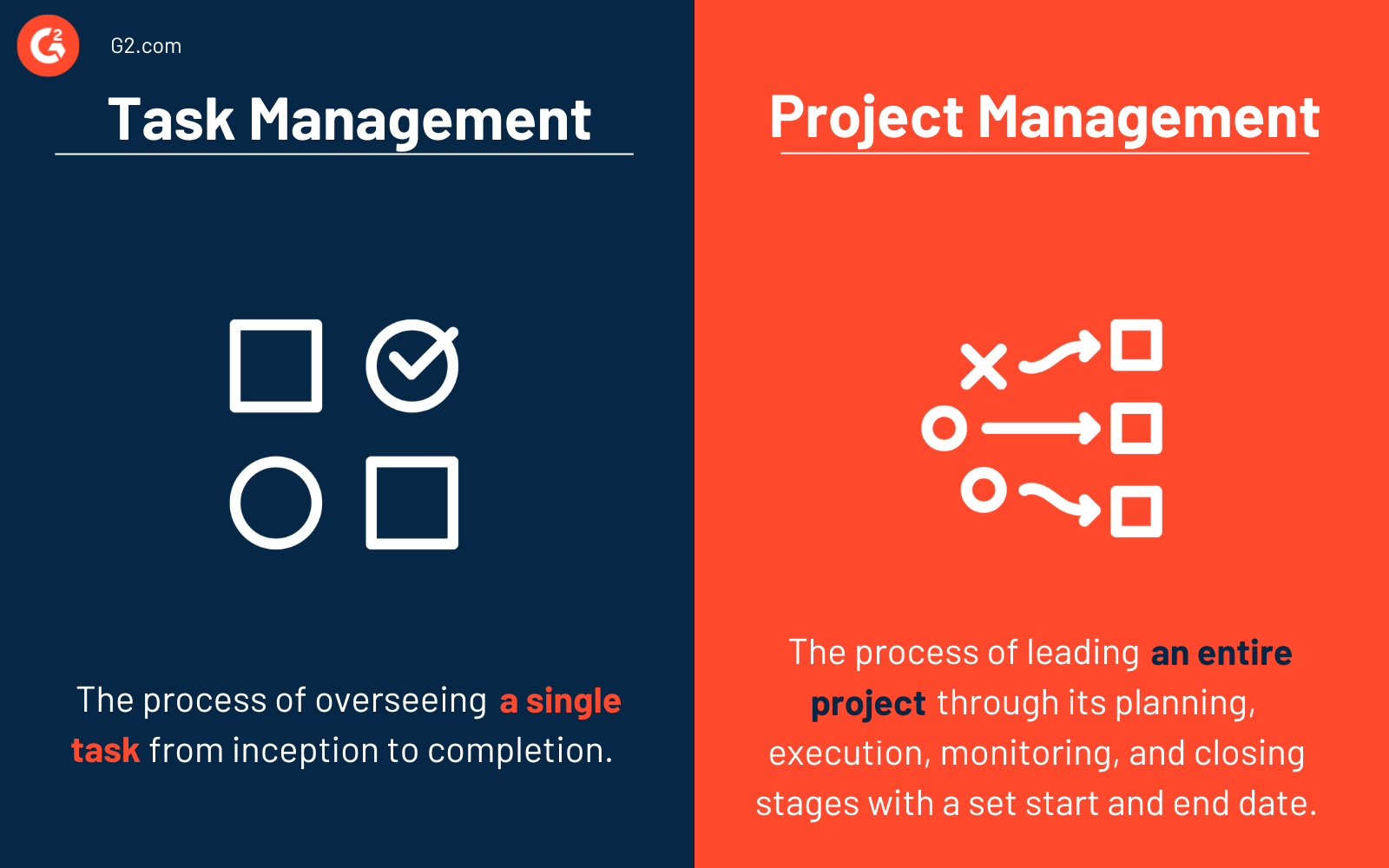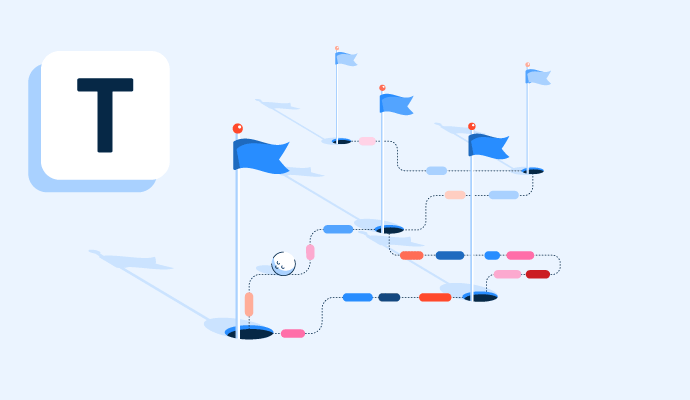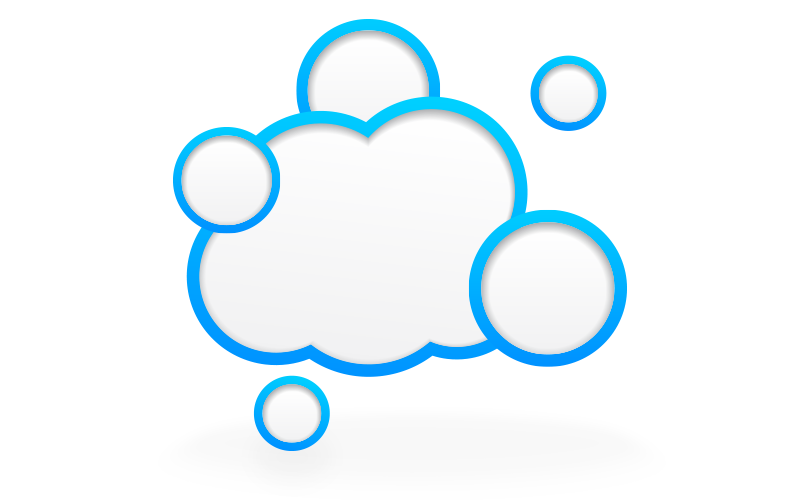What is task management?
Task management identifies tasks, prioritizes them based on their importance and urgency, and allocates resources to ensure they remain on track. It involves setting deadlines and monitoring progress to increase productivity while reducing stress and overwhelm.
Effective task management involves splitting larger projects into achievable milestones. It creates more feasible tasks that professionals reference as they progress toward their goals. It includes using tools such as to-do lists, calendars, or project management software to stay on top of the tasks and ensure that nothing falls through the cracks.
Types of task management
Professionals choose a task management type depending on their needs and preferences, experimenting with different approaches to find the one that works best.
- To-do lists are simple lists of tasks that need to be completed. They can be written on paper or created using digital tools such as apps or software. To-do lists are a straightforward way to monitor job duties.
- Task prioritization involves assigning a priority level to each task based on its importance and urgency. It steers professionals toward focusing on and completing the most critical tasks on time.
- Time blocking includes scheduling specific sections of time for different tasks or activities. It helps teams stay focused and finish tasks on schedule.
- Project management comprises grouping larger projects into smaller tasks and assigning them to specific team members to help finish projects within the deadline and budget.
- Agile methodology is a project management approach that breaks down projects into small, iterative tasks completed in sprints.
Benefits of task management
Task management is an essential skill for achieving goals more efficiently and easefully. Several benefits come from implementing effective task management in personal or professional life.
- Manage workload. Keeping an eye on the calendar helps decide which tasks to prioritize and which have approaching deadlines.
- Improve productivity. Professionals make the most of their time by prioritizing and clearing important tasks. It allows them to accomplish more in less time.
- Avoid anxiety: When people understand what needs to be done and when, they feel more in control of their workload and less stressed or overwhelmed, which improves mental health and well-being.
- Improve communication. Task management improves team communication by providing a clear picture of which tasks are assigned to whom, when they are due, and which resources are required.
- Better time management. Effective task management helps professionals to break down larger projects into smaller tasks to complete them, avoiding procrastination.
- Improve accountability. When tasks are assigned and tracked, it’s easier to hold team members accountable for their work so everyone pulls their weight.
Common task management methods
The most effective task management method depends on the needs of each individual or team. Experimenting with various techniques and strategies is essential for finding the best one. Below are a few task management methods and strategies professionals use to organize and prioritize tasks.
- The Eisenhower Matrix divides tasks into four categories based on their urgency and importance. The categories are: urgent and important, important but not urgent, urgent but not important, and not urgent or important. It prioritizes tasks and focuses on the most critical ones first.
- Pomodoro Technique is based on working in focused, 25-minute intervals, followed by a short break. Users say it helps them stay focused, avoid distractions, and ensure they take regular breaks to prevent burnout.
- Getting Things Done (GTD) groups tasks into smaller, actionable steps and organizes them into different categories. The categories are: projects, next actions, waiting for, scheduled, and someday/maybe. It ensures nothing is overlooked.
- The Kanban Method puts tasks on a Kanban board, which is divided into columns representing different stages of the task lifecycle, such as to-do, in progress, and completed. It helps individuals track progress and make sure tasks are moving forward efficiently.
- Inbox Zero aims to close all conversations in an inbox by day’s end in an attempt to achieve peace of mind and better focus when work is over.
Task management vs. project management
Some may confuse project management with task management, but the two have key differences.

The process of overseeing a single task from inception to completion is known as task management.
Project management leads a project through its planning, execution, monitoring, and closing stages with a set start and end date. A project aims to finish a particular goal by carrying out several doable work activities. These activities are referred to as tasks.
Managing a project requires a broad perspective. Project managers typically oversee several ongoing projects with varying priorities. An accurate analysis of the connections and dependencies between various components is necessary for successful management.
Task management calls for micro focus on finishing the present tasks. Team participation and management are necessary for both project and task management to ensure people can handle multiple tasks.
Learn more about scaled agile framework and discover how workflow patterns help businesses scale lean and agile processes.
Sagar Joshi
Sagar Joshi is a former content marketing specialist at G2 in India. He is an engineer with a keen interest in data analytics and cybersecurity. He writes about topics related to them. You can find him reading books, learning a new language, or playing pool in his free time.

